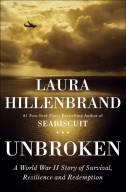One Man
Stephen Talty’s book, Agent Garbo (Houghton Mifflin Harcourt Publishing Company, 2012), tells a spectacular story of one man’s enormous contribution to the Allied victory in World War 2. Viewed through the lens of today, this story is unbelievable.
Here’s the short version.
In 1941 Juan Pujol Garcia was a 28-year-old chicken farmer in Barcelona. Unalterably opposed to Hitler and the Nazis, he walked into the British embassy in Madrid and asked for a job as a spy. Of course they rejected him. So he went to the Americans. They were not impressed with him either.
Then Pujol asked the enemy for a spy job!
After hearing his emotional and bombastic profession of love for Hitler, the Germans accepted him…if he would relocate to England. Instead, he moved to Portugal and convinced the Germans that he was writing reports from England. When they told him to hire some agents, he created a fictitious network of 27 spies.
At that time, British Intelligence was an oxymoron (they were seriously considering staging the Second Coming of Christ as a means of defeating the Germans). But they soon had enough intelligence to realize that a very proficient Nazi spy was undermining the Allies. Finally, Pujol had gained the respect of British Intelligence!
When he went back to them, they accepted him as a double agent and code-named him “Garbo,” for he was surely the best actor in the world. He was theatrical, emotional, daring, and brilliant. And maybe nuts.
Agent Garbo’s greatest role was his support of D-Day. To create the illusion of an Allied strike 200 miles from the real one, he contrived a completely fabricated million-man army, led by General Patton. Under Pujol’s direction, the British built thousands of wood or inflatable decoys of tanks, boats, airplanes, hospitals, and other wartime necessities. Patton, like an actor, even made a speech in his fictional role.
The Germans bought it. Furthermore, Pujol had the audacity to convince the Germans that the real D-Day invasion was a scam. Even after D-Day! Although they assigned an army to Normandy, they kept a far larger force at the fake site. Clearly, without Pujol’s masterful deceit, D-Day would have cost thousands more lives than it did.
It is one of the most astonishing stories I’ve ever read.
How was it even possible that a man who had no training as a spy and failed at everything else in life became an essential voice to, both, Hitler and Churchill? He, a double agent, is the only spy to be honored by both Germany and England.
So many contributed to the success of D-Day. But Juan Pujol Garcia probably achieved more than any other individual.
Beyond my high recommendation of the book, Agent Garbo really challenged me. Could one person achieve such bold and sweeping things today? I don’t know. But it’s an important question.
It seems that today we live inside a screaming wind tunnel that blows everything into conformity with acceptable patterns. As a result, the distinctives of individuals are contoured into the most “aerodynamic” uniformity possible.
Progress seems to take as much as it gives. I love living in this age; I would not want to live in any other time or place. But it does seem that we’ve lost our view, and our honor of, grand individuals. We all seem to identify with our group.
That is why Agent Garbo is such a mesmerizing artifact. It gives the reader a clear view of a time when individuals sure seemed to matter more than they do today.
Perhaps the leveling of structures in our time will release individuals to achieve great things again.

